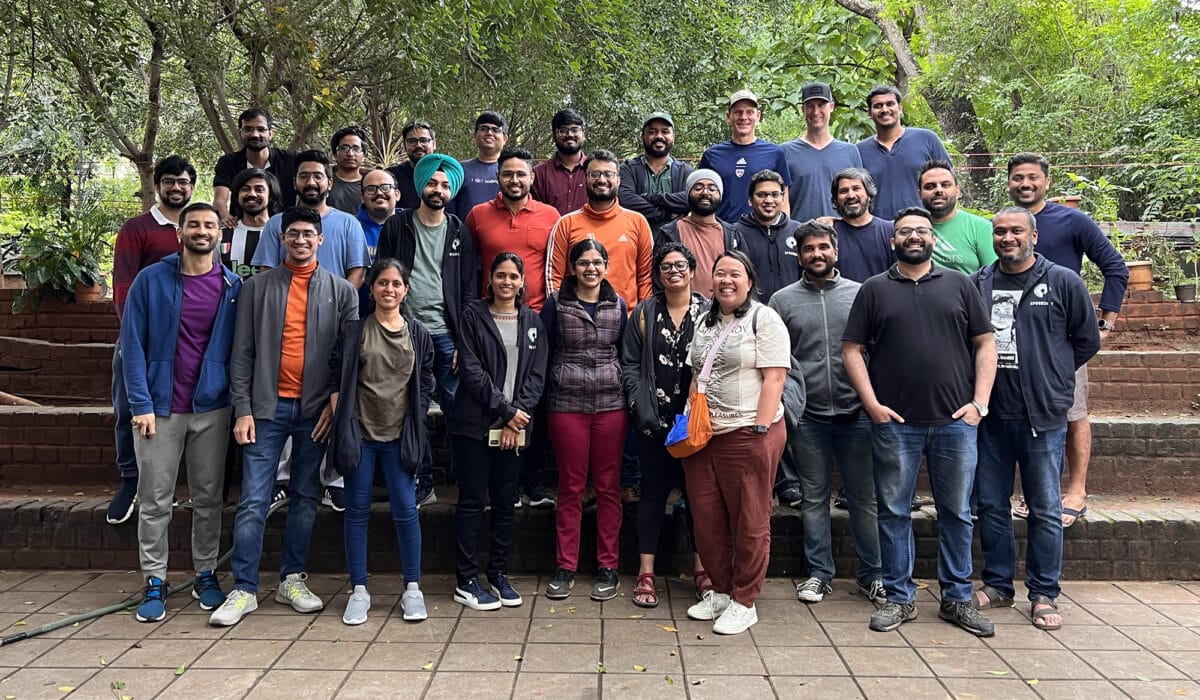In 2011, David Niu was feeling what most professionals experience at one point or another: burnout.
He was working on his second startup, BuddyTV, a website that served as a social network for people watching TV shows and sporting events.
Niu wasn’t sure why he was feeling burned out, he later explained in a speaking engagement. “But I had a feeling it was around the softer stuff. It wasn’t the hard metrics, because [BuddyTV was] doing really well.”
He knew something had to change. The following year, Niu, his wife and small daughter spent six months traveling the world, according to Geekwire. It was both an escape from his burnout and a chance to think about his next steps in the business world.
During the trip he spoke to 30 entrepreneurs about their experiences. At the end of each interview, he would ask: “What’s one pain point you have when it comes to managing people, that if I take away, you’d gladly pay for?”
Niu compiled the entrepreneurs’ advice into a book, Careercation, that he gave away for free online. He also came back from his trip with the idea for his next startup.
“I realized that one of the most haunting feelings for any manager was when an employee submits their two weeks notice out of the blue,” he explained in a 2013 post on the website Geekwire. “Organizations have real-time dashboards for their web traffic, finances, inventory, etc., but why not for their most important asset—their people?”
From that realization, he created TINYhr. The company’s TINYpulse software allowed businesses to measure employee happiness with short, anonymous surveys.
With culture at its core, TINYpulse took off
Niu was committed to making all his new company’s options user-friendly, so subscribers could gather information they could act on quickly.
“For my first company, NetConversions, people would ask me and my co-founder what our plans were for the business,” Niu told Billion Success in 2013. “We’d always say, selling to a complementary player or going public.”
Instead, he said, the answer should have been, “we’re going to delight our customers who will then pay us. If we have enough of these clients then we’ll have lots of great options.”
Niu used that mindset both externally, to please clients, and internally to create a culture that exemplified the values he designed for TINYhr. While delighting customers was at the top of the values list, Niu encouraged transparency, accountability and communication among staffers.
By the end of 2015, Niu’s company had 500 customers including big names like GE and Airbnb, and had raised $9.5 million from venture capital. That same year, TINYpulse, as it was known by that point, saw 100% year-over-year growth and had close to 100 employees, according to Geekwire.
Pandemic amplified need for employee listening tools
The onset of the Covid-19 pandemic led to a realization for Niu. He found that despite his focus on culture at TINYpulse, he could still care more for the entire employee instead of focusing his energy on work tasks, he explained to the Society for Human Resource Management in 2021.
While Niu was adjusting his management style, another Washington-based employee wellness company, Limeade, was leaning into the idea that employee health—including preventing burnout—starts with listening.
TINYpulse had partnered with Limeade before, but the pandemic changed the way Limeade’s CEO Henry Albrecht viewed the potential between the two companies. “As workforces become more distributed and decentralized, and as workers develop more autonomy and control, we must all rise to the occasion of meeting people’s changing needs,” he wrote in a blog post. “And we can only do that if we’re listening.”
By bringing TINYPulse under the Limeade umbrella, Albrecht thought, Limeade could create an even more immersive employee well-being platform.
The acquisition took place as talk of the “great resignation” was taking off in the U.S., signaling a need for increased attention to workers’ mindsets.
In July 2021, the companies announced that Limeade had acquired TINYpulse for $8.8 million cash, with additional potential payouts over the 18 months to follow via an earn out. All 70 TINYpulse employees were expected to transition to Limeade, Geekwire reported, including Niu, who took the title of vice president of innovation.
When a startup sells for around the same amount as it raised, the bulk of the proceeds typically go to investors. We explain more on what this scenario usually looks like in this article: What happens when a company sells for less than it raised?
Niu did not respond to an interview request from They Got Acquired. This was not his first acquisition experience; he sold his first company in the 2000s and another the following decade.
At the time of the sale, TINYpulse reported $6.5 million in revenue for 2020 and an adjusted EBITDA loss of $1.2 million. Along with employee survey and peer recognition programs, it also offers one-on-one employee coaching software. TINYpulse is now formally known as Limeade Advanced Listening.
The total payout ended up at $9.1 million in cash, according to Limeade’s Q3 2022 SEC report. As is common with acquisitions, some of the earn out did not come to fruition because certain milestones weren’t met.
“The earnout consideration had defined evaluation periods at six, twelve, and eighteen months after the closing date of the acquisition,” according to the report. Those milestones were based on additional contracted annual recurring revenue, or CARR; in other words, new revenue signed post-acquisition. “The earnout of $0.9 million was written off,” the report continued, “as the possibility of the CARR target being met at the final evaluation period of eighteen months was not probable.”
Limeade had gone public on the Australian stock market in December 2019. At its IPO, it was valued at $335 million and had about 230 employees.
